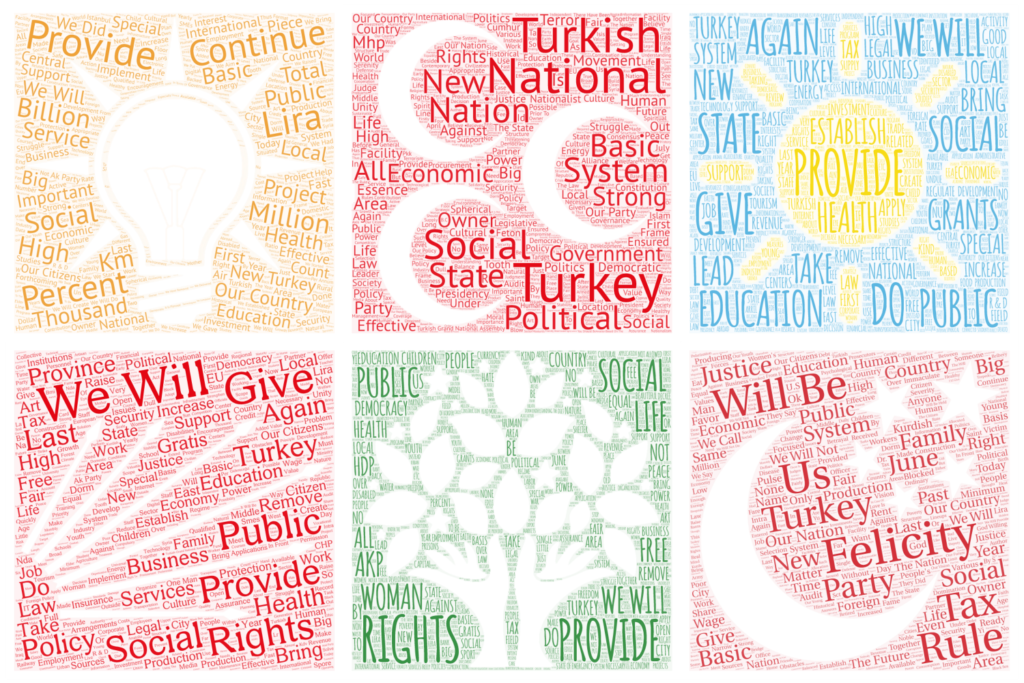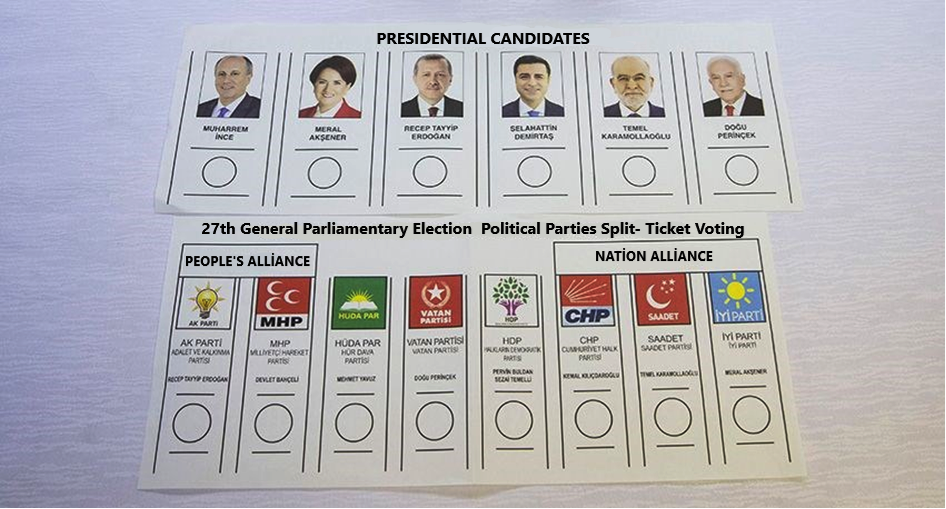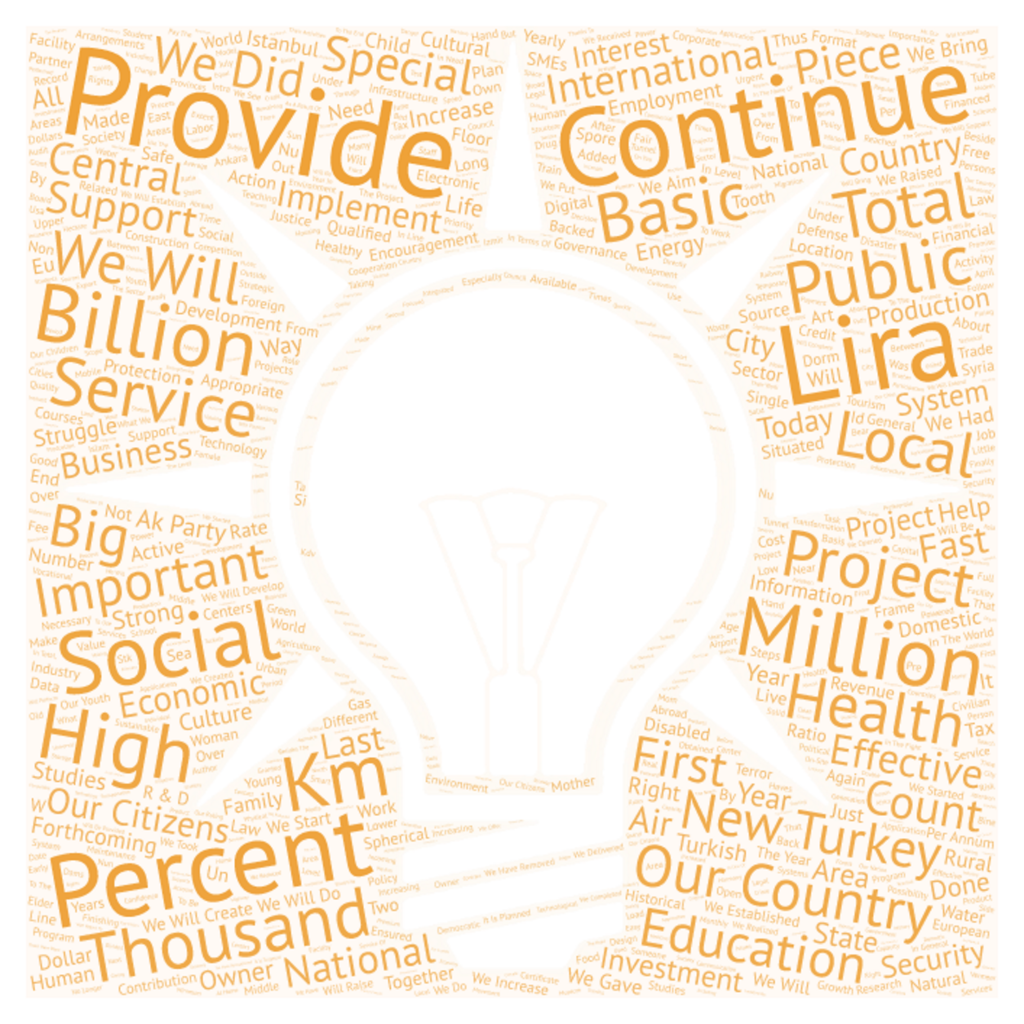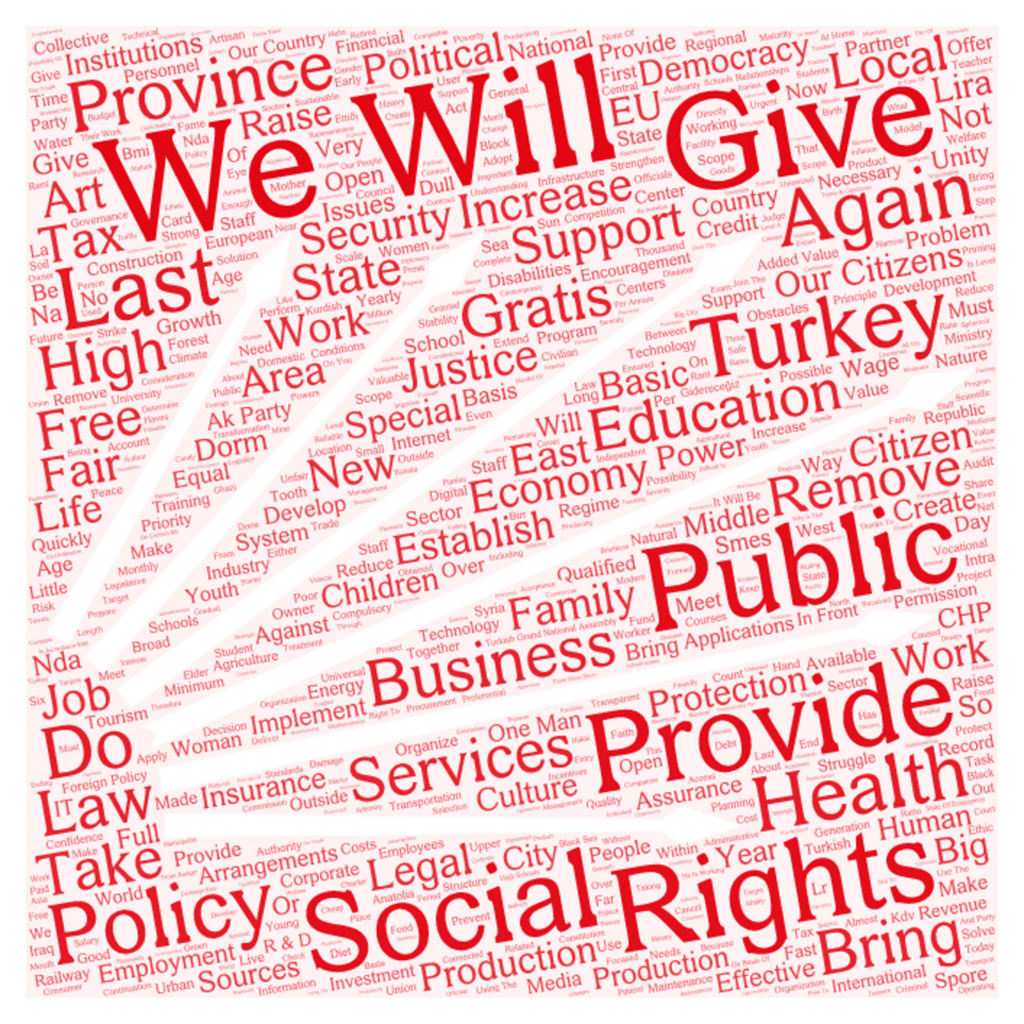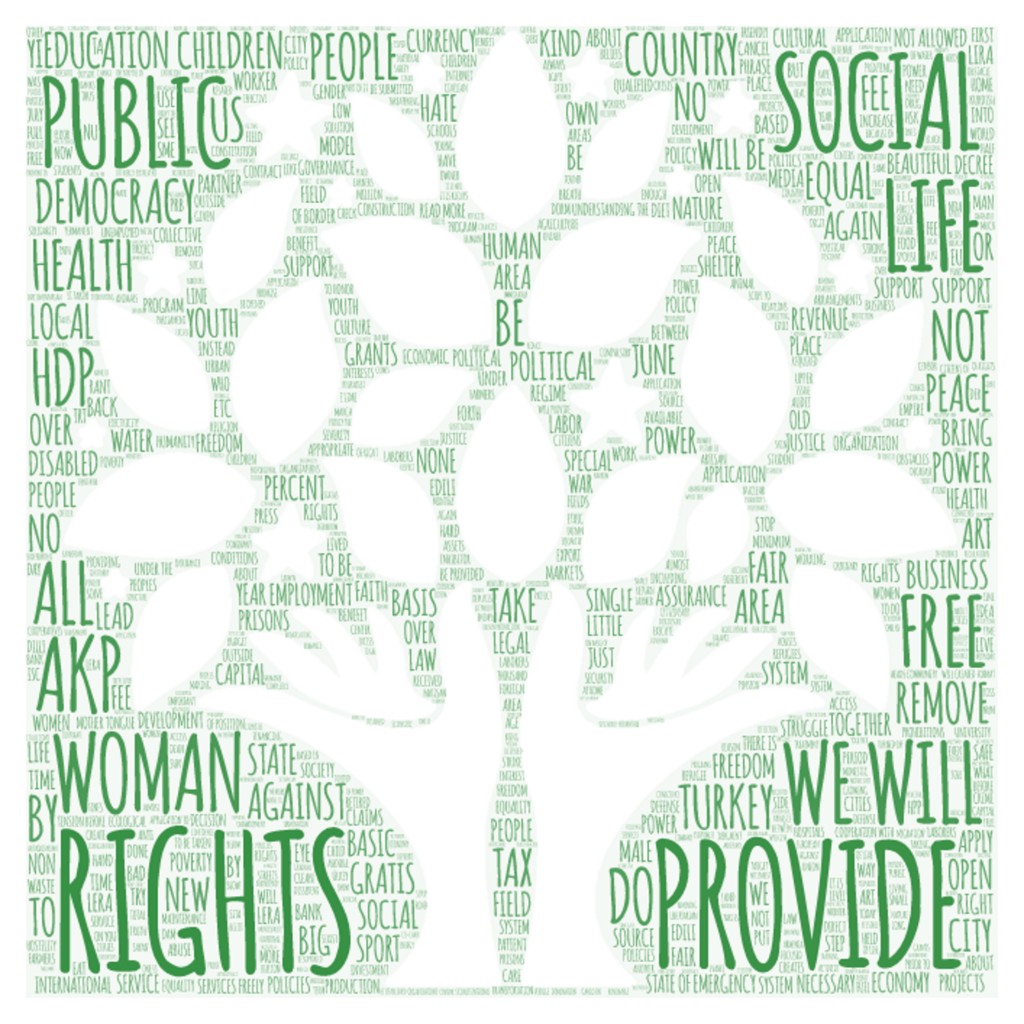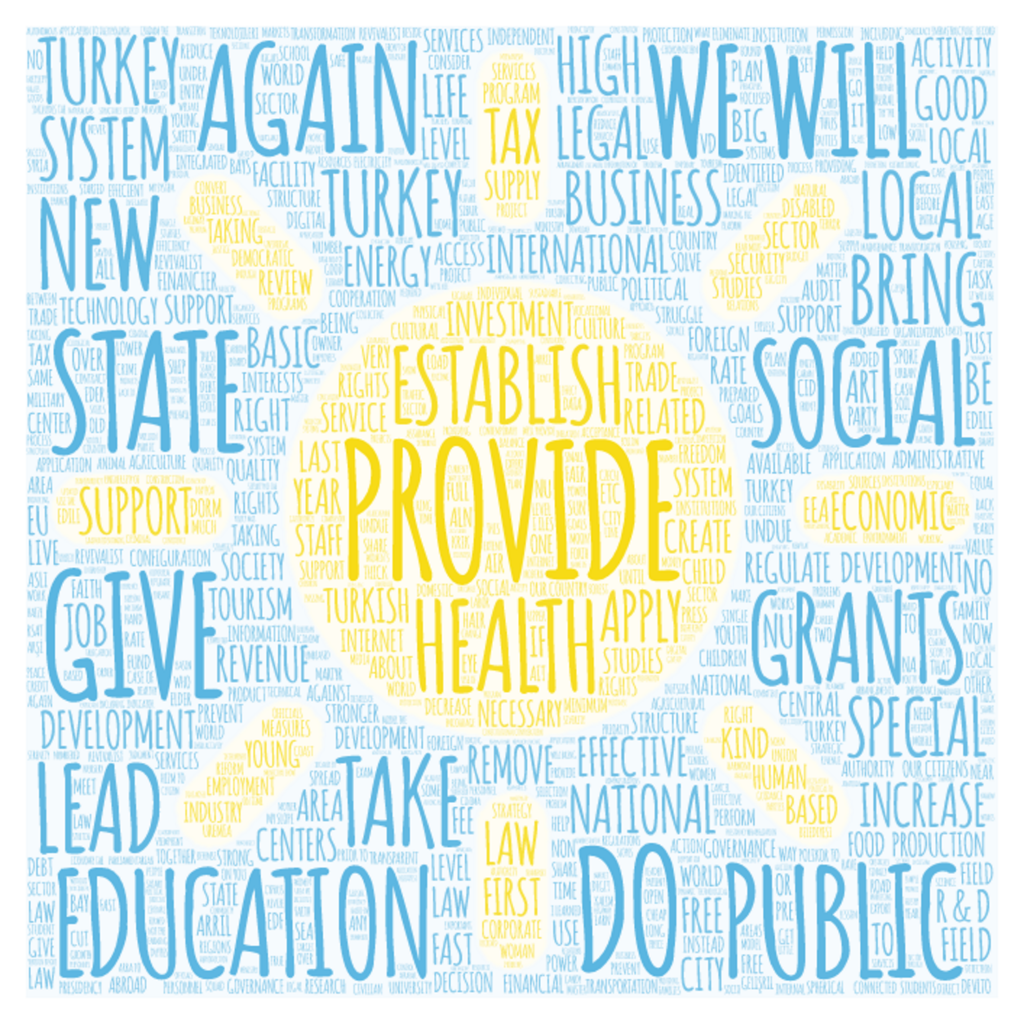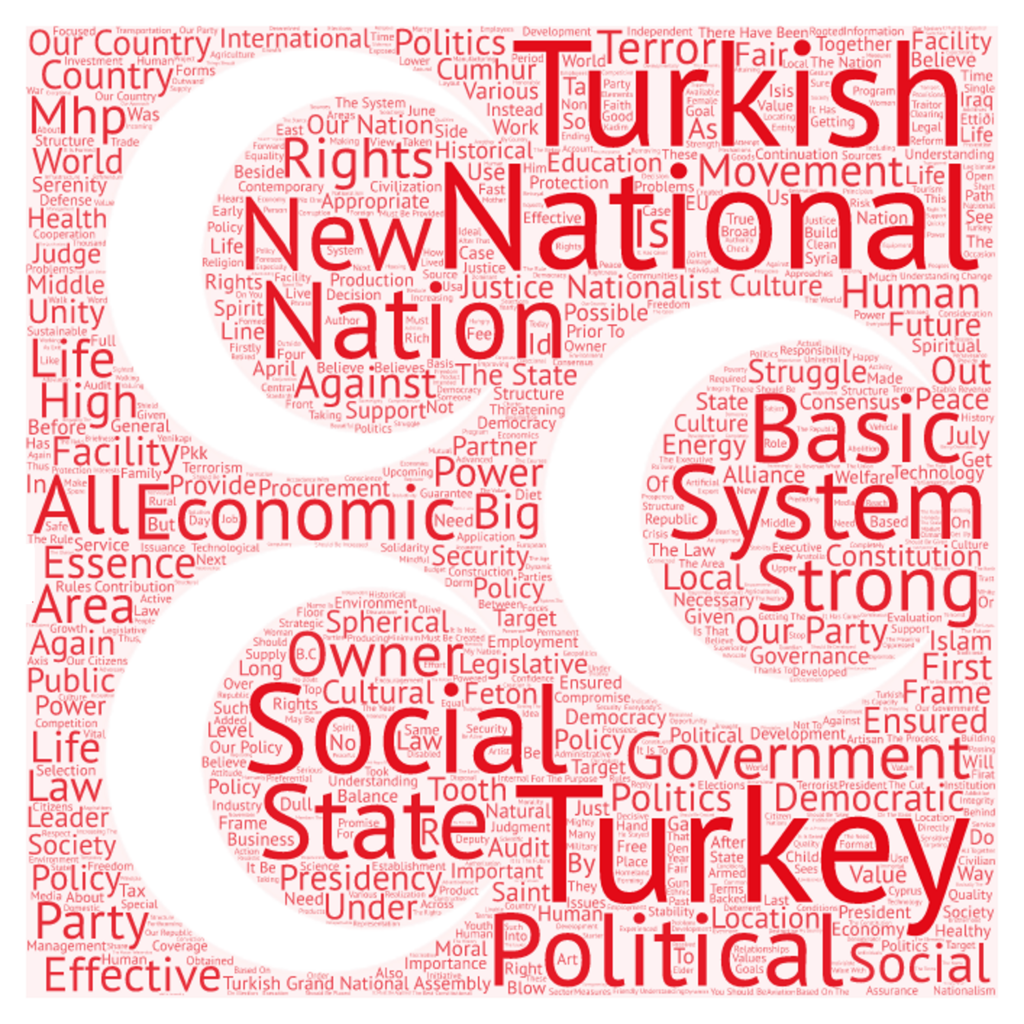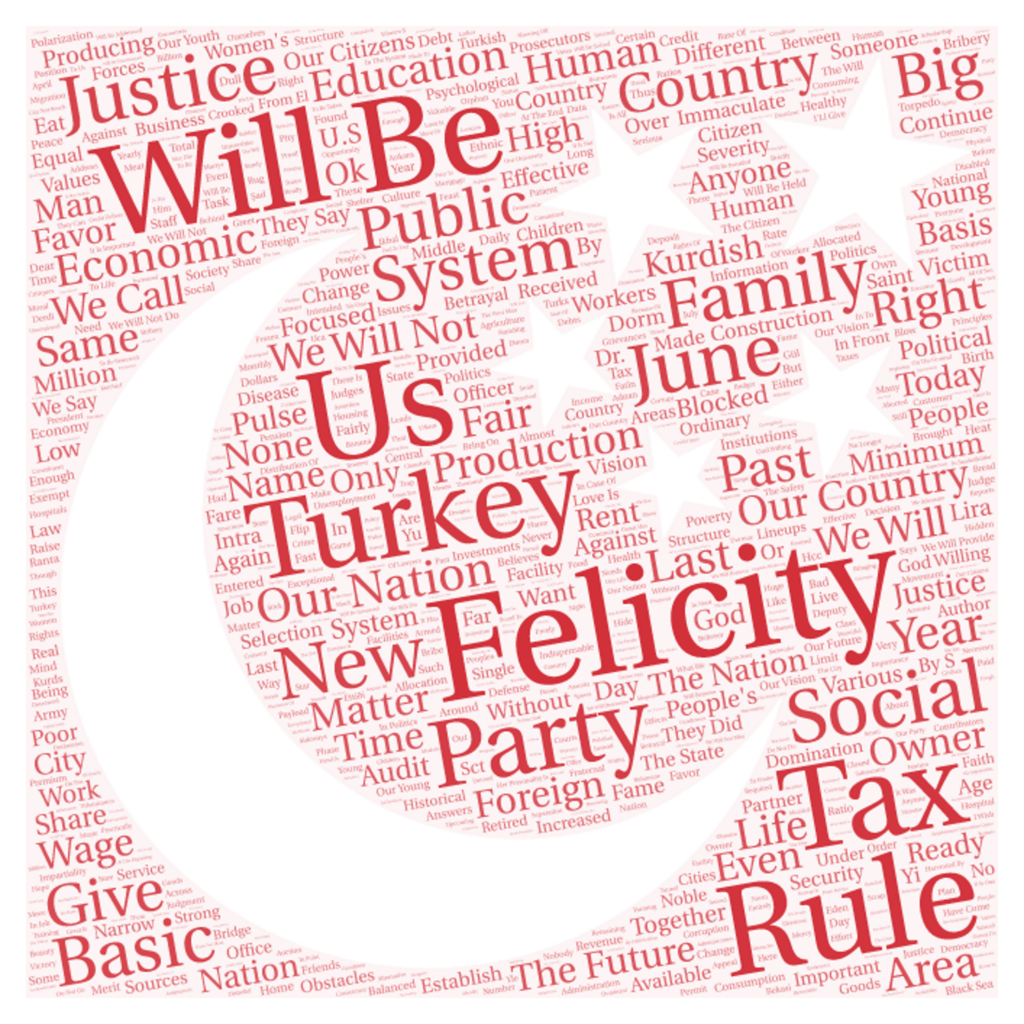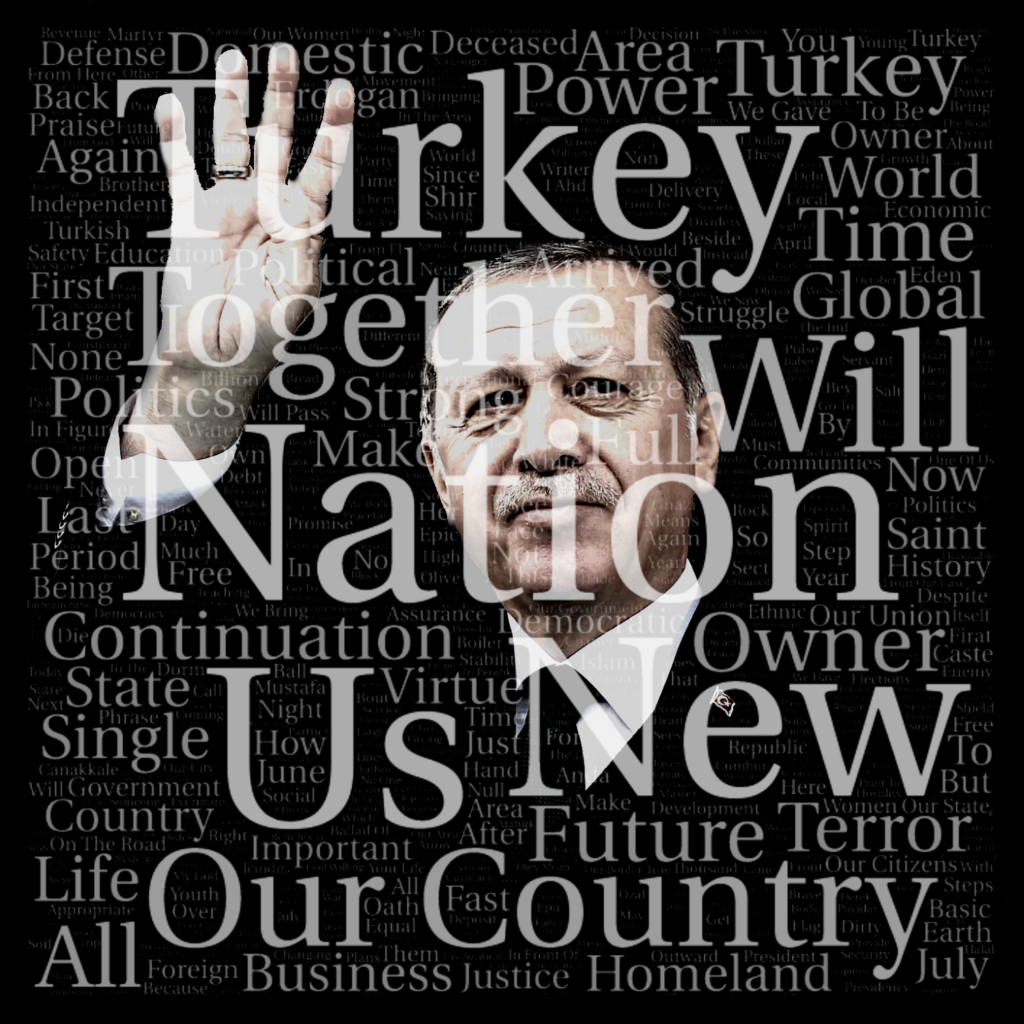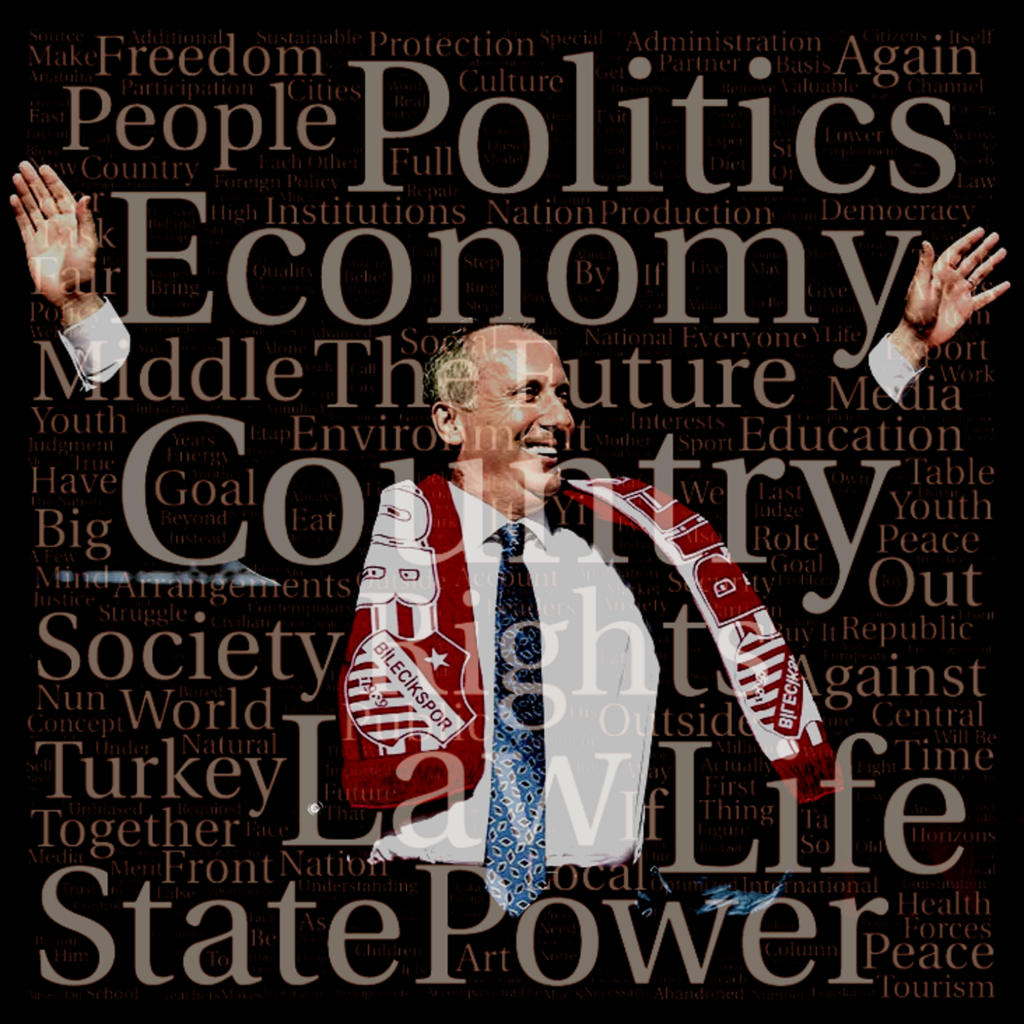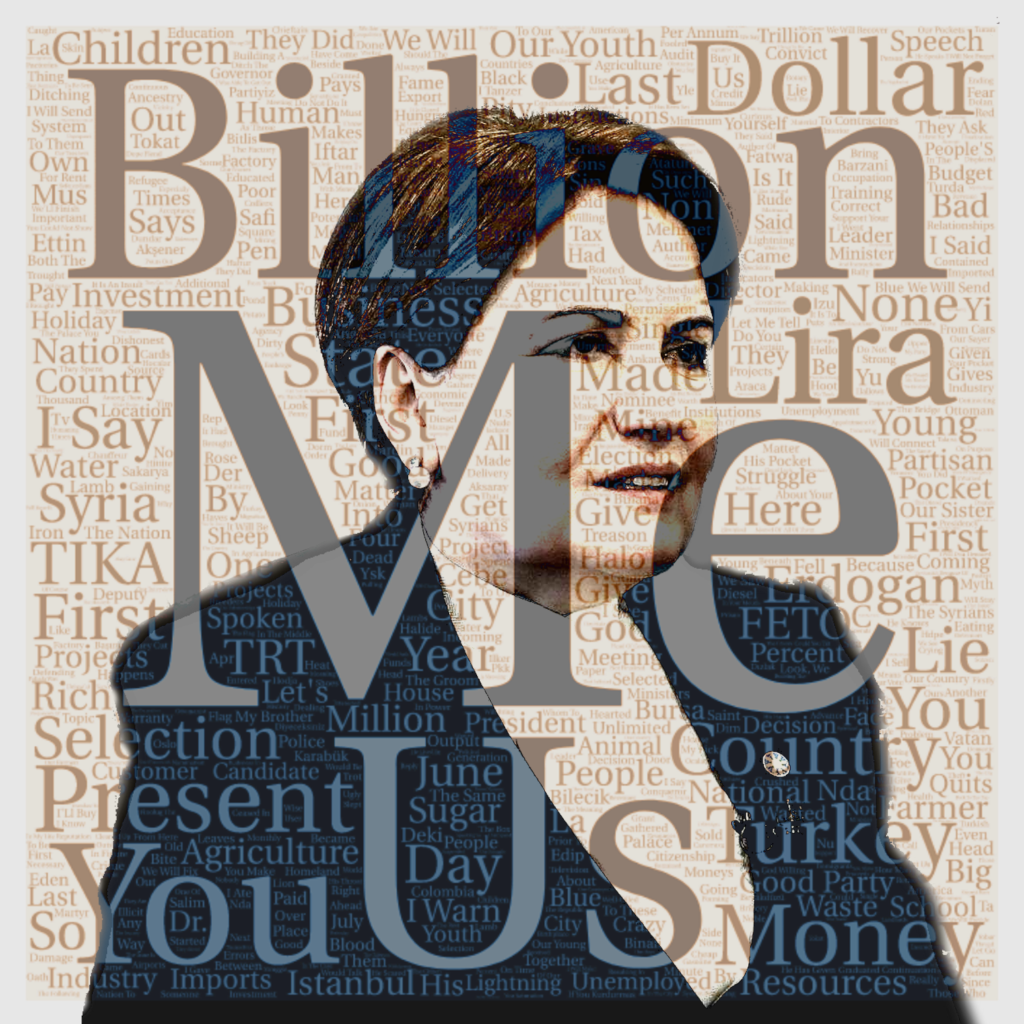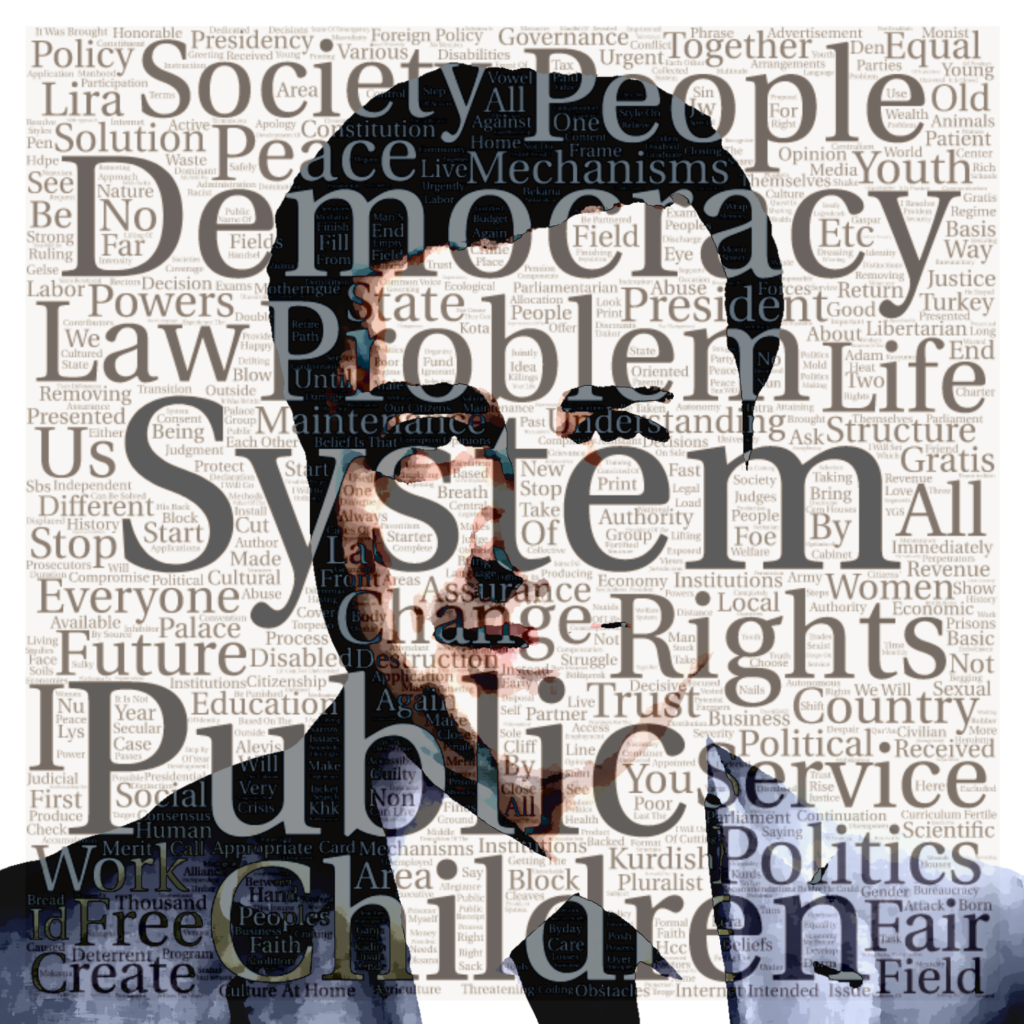Windrush scandal
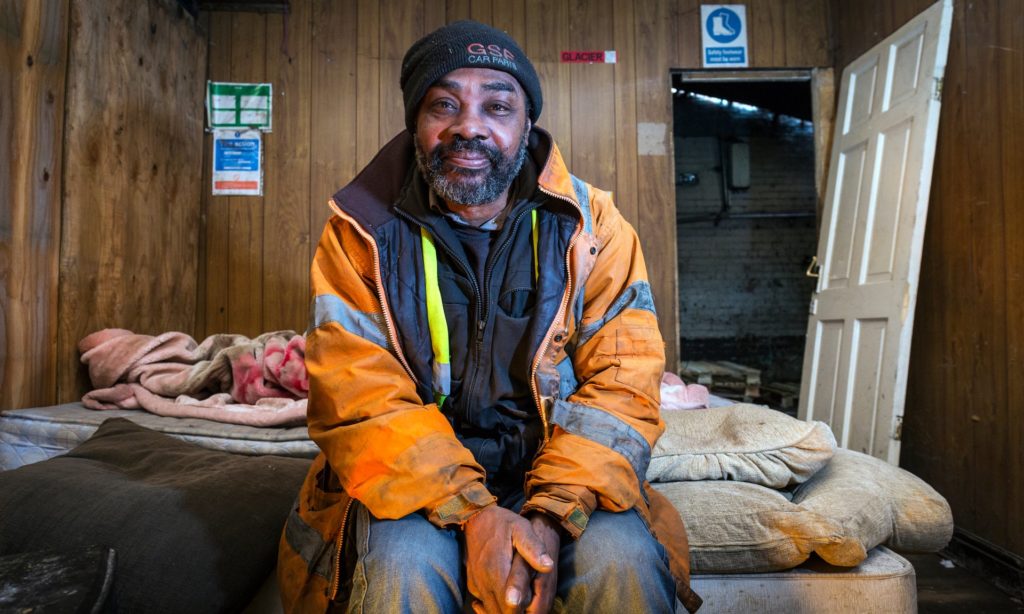
Renford McIntyre in the industrial unit where he lives.
Photo credit: David Sillitoe for the Guardian
‘I’ve been here for 50 years’: the scandal of the former Commonwealth citizens threatened with deportation from the UK.
They have lived nearly all their lives in the UK, working and paying taxes. But in the draconian new immigration climate, an increasing number of elderly people are being told that they are here illegally.
For the past year, Renford McIntyre has been homeless, mostly sleeping on a sofa in an unheated industrial unit in Dudley. Although he has lived in the UK for almost 50 years, and spent 35 years working and paying taxes as a tool setter, a delivery man in the meat industry and an NHS driver, he has been told that he is not British – and consequently is neither permitted to work nor eligible for any government support.
McIntyre, 64, has no shower and nowhere to cook, and has to visit friends if he wants to eat hot food or wash. “It’s an appalling place to live. I’m a proud man; I’m embarrassed at my age to be living like this,” he says.
He was surprised and confused to be told he was not British. He arrived in the UK in 1968 by plane from Jamaica. He was 14 and had come to join his mother, who had come over to become a nurse, and his father, who was working as a crane driver. “I’ve been here for almost 50 years, I’ve worked night and day, I’ve paid into the kitty – but now no one wants to help me,” he says.
In 2014, a routine request from his final employers to update paperwork revealed that he didn’t have a passport and had never naturalised in the UK. He was sacked. Unable to find new work without papers, he became depressed, and then homeless. Dudley council said he was not eligible for emergency housing because he had no right to be in the country. Similarly, he has been told he cannot sign on for benefits.
He has gathered together paperwork showing 35 years of National Insurance contributions, with the support of the Refugee and Migrant Centre in Wolverhampton, but the Home Office has returned the application, requesting further evidence. “It makes me so angry. I’ve always worked. I’m a grafter. I can’t explain how bad it makes me feel,” he says.
“It makes me so angry. I’ve always worked. I’m a grafter. I can’t explain how bad it makes me feel.”
McIntyre is part of a largely invisible group of people who arrived in the UK as children from Commonwealth countries more than half a century ago and grew up here believing themselves to be British, only to discover recently, in a newly hardened immigration climate, that they are without the necessary papers, and unable to prove their right to be here. The scale of the problem is only just emerging as more long-settled, retirement-age individuals come forward with details about brutal treatment at the hands of the Home Office.
Recently, the Guardian highlighted extreme cases of people who have been sent to immigration removal centres, and prepared for deportation to countries they have not visited since childhood. Paulette Wilson, a former cook who served food to MPs in the House of Commons, was sent to Yarl’s Wood immigration removal centre last October and taken to Heathrow for deportation to Jamaica, a country she has not visited since she was 10 (51 years ago), and where she has no surviving relatives. A last-minute legal intervention prevented her removal, and following media coverage, she has been granted a residency permit.
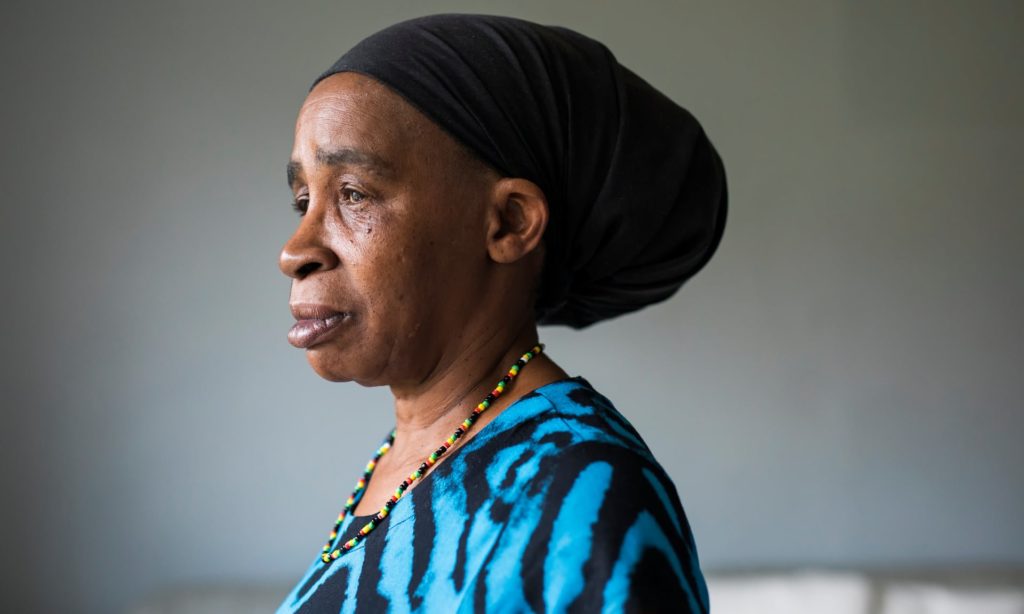
Paulette Wilson. Photo credit: Fabio De Paola for The Guardian
A number of others in similarly difficult positions have since come forward. Some, like McIntyre, have been made homeless by the Home Office’s refusal to accept that they have a right to be living here; others have opted to live a life beneath the radar, to avoid deportation; while others have struggled to get cancer treatment, amid questions over their eligibility for NHS care. High commissioners of Commonwealth countries are concerned about the number of elderly former Commonwealth citizens, who have been here since childhood, facing similar problems and have called on the UK government to show more compassion.
Judy Griffith, 63, flew from Barbados in 1963, when she was nine to join her parents who had been persuaded to emigrate here by a recruitment appeal for workers to drive buses in Britain. Her mother bought her a pair of woolly slippers to keep out the Bedfordshire cold, and enrolled her in primary school. For 52 years she has studied, worked and paid taxes in the UK, employed variously by the Metropolitan police and Camden council, so it came as a shock when a Jobcentre employee told her: “As far as we’re concerned, you’re an illegal immigrant.”
Griffith has found herself in an impossible situation. Because her status as a British citizen was under question, she was unable to work and could not travel. When her mother became sick in Barbados in 2016, Griffith was unable to visit her; when she died, she could not attend the funeral. She has been under pressure from the Jobcentre to find work, but every time she successfully interviews for a job, employers cannot take her on because she has no passport. Without work she has got into thousands of pounds worth of arrears on her flat in London, and narrowly escaped eviction before Christmas.
She has been trying to resolve her predicament for years, repeatedly crashing up against Home Office intransigence. In a last-ditch attempt to solve the situation, she spent five hours waiting in a Home Office processing centre on 27 December, to be told that although officials believed her claim was valid, she was “not on the system”. A letter stated that new checks needed to be made, adding: “Please note it is no longer possible to make an enquiry in person. Please telephone the number on this letter in the first instance if you need to contact us.” There was no telephone number on the letter.
“They keep saying that I am not on their system – but of course I can’t be on their system because when I came here in 1963 there were no computers,” she says, enraged by the catch-22. “My mother died in 2016. I couldn’t travel to see her, or take part in her funeral. It really hurt me. It is the unfairness and injustice of it that upsets me more than anything.”
“My mother died in 2016. I couldn’t travel to see her. It really hurt. The injustice upsets me more than anything.”
Griffith’s problems began a few years ago when she sent off her Barbadian passport, which had a leave-to-remain-in-the-UK stamp inside, to an agency as part of a job application. In due course, the agency sent back the passport, but it never arrived. When she finally managed to find someone to talk to at the Post Office, Griffith was told that the postman had been mugged, and all that day’s post stolen.
“I wasn’t that worried about it. I thought: I’ve been here all these years, been to school here, I’ve worked here and paid taxes all my life; my children were all born here and pay taxes.” Barbados became independent in 1966, leaving people who had traveled here with a requirement to naturalise if they wanted to remain; however, this was not something she was aware of, and it has only been with the tightening of immigration rules introduced by this government that it has become necessary. “If you can’t work and support your family, how are you meant to live? It affects you mentally, physically and spiritually,” she says. “I don’t know if I am am going to be snatched from my bed in the night and deported.”
Attempts by Jeremy Corbyn, her MP, to untangle the situation came to nothing, and after three years trying to find a solution she was beginning to lose hope. But when I contacted the Home Office, staff said she had been “issued with documentation confirming she has indefinite leave to remain here”. Shortly before publication on Wednesday morning a package arrived at her flat with papers authorising her stay. She said she was in tears of relief (and gratitude towards the Camden Law Centre for their help), but also furious at the prolonged ordeal. “I feel a sense of anger because of the humiliation I’ve had to go through to get something which should have been my right. I don’t think the Home Office realise how much I’ve suffered,” she said.
The Jamaican high commissioner Seth George Ramocan says he believes there are a significant number of people grappling with similar difficulties. “We don’t know how many there are, primarily because they are unaware of their status, or lack of it. Most believe that they are OK, that they are British. People are thrown into crisis when they find out,” he says. “When you are in this situation you cannot get a job, healthcare, a place to live. It locks you out of the system.”
Jay (who has asked for his full name not to be printed) came from Grenada in 1966, when he was nine, on his brother’s passport to join his father, who was working nights in a sheet metal plant, and his mother, who worked as a dinner lady and in a jam factory. He has become aware that he needs to naturalise formally, after 52 years in the UK, but the process is prohibitively expensive and he is worried that he does not have all the documentary evidence required. Determined not to risk being deported or detained, he has decided instead to live under the radar, avoiding all contact with the state, despite having the legal right to be in the UK. This unresolved status makes him nervous. “You see immigration vans – they are often parked up the back streets here, and you think they might be after you. It is always at the back of your mind.”
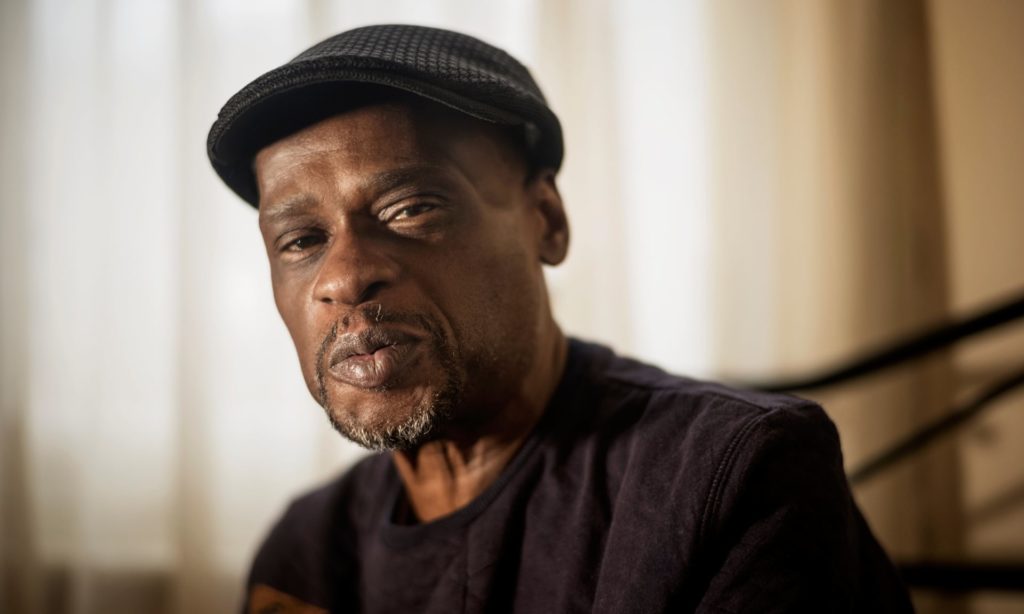
‘I can leave the country on a Jamaican passport, but I can’t come back.’
Hubert Howard, photographed by Sarah Lee for the Guardian
Hubert Howard, 61, has had a similarly traumatic experience. He travelled to the UK from Jamaica with his mother when he was three, and has never lived anywhere else. He, too, was first mystified and later enraged when he was told six years ago that he was an illegal immigrant with no right to live here.
Because the Home Office had ruled him illegal, his employers, the Peabody Trust, were obliged to make him redundant, despite the fact that he was a trusted and highly regarded employee who had been with them for a decade. The years he spent working as a maintenance worker for British Rail, a plumber and later as a senior caretaker for the housing association, and the tax he had paid over 35 years of working life, counted for nothing.
His mother returned to Jamaica when she retired, and Howard’s problems emerged when he wanted to visit her urgently when she became ill in 2005. He applied for a passport, but his application was rejected because he had never naturalised. He hadn’t known that this was necessary. His mother died without him seeing her in 2006.
When Theresa May announced the introduction of a “really hostile environment” for illegal immigrants in 2012, his life became very complicated. “Peabody wanted to see the passport that I came in with, but my mum had taken it. Immigration was swooping all over the workplace,” he says. “My employers were told by the Home Office that they had to get rid of me, otherwise they would get fined. All I needed was for the Home Office to say I was legal, but they said I was an overstayer and I didn’t have status. I tried to argue they were wrong. I left my job in 2012.”
Since losing his job he has battled to get unemployment benefits. To begin with he thought he would be back in work quickly but he soon realised that it was going to be impossible without papers. In 2013, he received a letter from the Department for Work and Pensions saying he was not entitled to benefits because he had no status. In 2015, he received a letter from the government contrator Capita telling him he had no status, and informing him that he needed to leave the country.
The Home Office later acknowledged verbally that he has settled status; however, he has never had written confirmation. He remains worried that the lack of clarity means he is vulnerable to renewed attempts to force him to leave. He managed to get a Jamaican passport in 2012. “I can leave the country on a Jamaican passport, but I can’t come back.”
Howard, McIntyre and Griffith all have a legal right to stay in the UK because the 1971 Immigration Act gave people who had already settled in Britain indefinite leave to remain, but all have struggled to gather enough documents to convince the Home Office that they arrived before the cut-off point.
“They basically messed up my life,” Howard says. “I had a steady job. They took my job away, stating quite clearly I had no status in this country. It broke my heart losing my job with Peabody. It was the best job I was ever in. When my mum passed away, I wasn’t there, and I still have not been at her graveside. I haven’t left the country since I was four, not even to go to France or Ireland.
“The people they have targeted have all worked and contributed. I don’t think this is a mistake. I think they are deliberately doing it. I’ve paid my tax and insurance. The Home Office should know that. The whole system stinks because there is no one to help us. That’s what is hurting me most. When I started this, I was entitled to legal aid, but they took it away. I’ve got no one to turn to.”
Elections clouds cleared: Which party, which candidate says what?
A single voter cannot read all statements, watch all rallies; this is the reason why there is press.
How are you going to decide who to vote for when you are alone in the voting booth with those two voting tickets on June 24?
Some of us will vote for the leader whom he admires forever or for the party inherited from family, some of us will think strategically and try to reduce the power of a party or try to enable a party pass the threshold. Some of us are still undecided between at least two parties and candidates and maybe will make a choice in the last minute.
This article has no use for established voters of a party or loyal followers of leaders. I do not want to take your time. The calculation of voters who think strategically is apparent, they can look at the images at the end of the article for pleasure and proceed on their way.
There are a lot of things to do for undecided voters. A single voter cannot read statements of all parties, familiarize with leaders who do not have media coverage. This is the reason why there is free press.
For this article, firstly I collated differences of parties in various matters, then I made clouds of the words most frequently used in statements. Finally, I included portraits of presidential candidates and made word clouds based on their statements.
You can consider this article as a classmate who summarizes all readings and lecture notes of the class for you on the night before the final. I hope it will be useful specially for the voters who will vote for the first time.
Promises Per Subject and Hükümetre
Many broadcasting institutions compared parties’ promises per subjects, thus gave the opportunity to voters to make a choice according to their priorities.
Among those, the most comprehensive one is the news prepared by BBC Turkish Service which compares the parties in eight main subjects. Taking into consideration coalition possibilities after election, I believe this is a work which will benefit to every voter, loyal or undecided.
If you will make your choice based on policies regarding subjects other than those eight main subjects, such as vegetable-fruit prices, environment or sports, I collated below comparisons regarding 16 different fields published in 12 sources. You may click on the links for further information.
Administration system
According to comparison of BBC Turkish, elections of June 24 is considered as a playoff of constitution referendum dated 16 April 2017 because ruling parties insist on presidential system to ensure stability in executive power, whereas all opposition parties are for amendment of constitution that guarantees separation of powers and enables the return to parliamentary system. The commitments of weakening President’s executive power and ensuring his impartiality are included in the statements of CHP, Saadet, İyi Party and HDP.
Justice
As for justice, AKP promises aggravating penalty of sex crimes against children and independence of judiciary. However Turkey had a significant decline in terms of rule of law in recent years. In order to reverse this, CHP and İyi Party suggest revoking criminal courts of peace and an appointment system assuring independency of judges and prosecutors. HDP and Saadet Party, on the other hand, suggest balancing prosecution and defense in proceedings and guarantee attorneys’ access to evidence.
Foreign Policy
In terms of foreign policy, AKP declares that it will restore the relations that it impaired in recent years, nevertheless it will continue cross border operations which is one of reasons. CHP suggest ending cross border operations and resolving problems with neighbors through diplomacy. While all opposition parties promise going back to negotiation table with EU, CHP suggests implementing reforms without waiting for chapters to be opened.
Freedom of Press and Expression
Prepared by Çınar Livane Özer for the website Hâlâ Gazeteciyiz, among parties’ promises on freedom of press and expression, opposition parties suggest lifting censure on internet and printed media and distributing equally public announcements to ensure multivocality in media, AKP MHP alliance claims that freedom of press has increased in their term. This is of course not true.
Environment
Bianet collected parties’ environment – related promises. AKP enumerates Paris Convention, environmental impact assessment reports used to cover for environment disasters and nuclear plant projects among its environment -related promises. CHP and İyi Party suggest investment on low carbon sectors and green technology as well as planning in order to ensure Turkey adapts to climate change. HDP has a policy focusing on protecting existing environmental assets.
Education
Mustafa Kömüş, from BirGün compared education targets in statements. AKP promises to keep changing the system which became a puzzle and to increase intervention to universities’ administrations. CHP promises to extend the mandatory education to 13 years and revoke YÖK as well as ensure gender equality and international standards in education. İyi Party, in addition to those, adds increasing employment of teachers. HDP promises liberal, secular education based on science together with autonomy of universities and education in mother language.
Persons With Disabilities
Halil Yılmaz collated promises regarding persons with disabilities in the forum named Engelliler.gen.tr. AKP enumerates what has been done during its term, while CHP promises providing medical products of disabled persons free of charge and improve their health insurances. İyi Party suggests legal regulations enabling persons with disabilities to be present in public spaces and in business life independently.
Energy
Sabiha Kötek from Enerji Günlüğü, compared energy policies of the parties. AKP declares that it will continue its current policy and use all energy sources for economic growth without distinguishing energy creating pollution or renewable energy. CHP plans regulating energy tenders which are a big income source and investing in solar energy. HDP prioritizes providing free energy to low income families and that energy planning does not damage environment.
Economy
Deutsche Welle Turkish Service collated parties’ promises on economy. AKP repeats its high growth goal same as in previous statements and explained recent economical negativities with “external cyclical negativities”. HDP and CHP require lifting State of Emergency to fix economy and suggest just distribution of income. İyi Party promises to reduce public expenses and make structural reforms. AKP, during its early years of power, promised these reforms but it did not realize them.
Kurdish Question
K24, a news agency based in Northern Iraq analyzed how political parties in Turkey approach Kurdish Question in their statements. AKP, in its statement, mentions the word “Kurd” only once in the following sentence: “ We consider all humanitarian issues of our Kurdish citizens as a problem of democracy and welfare. We prioritize our common history and civilization and brotherhood”. CHP declares that it will resolve Kurdish Question “on the basis of equal citizenship principle and dialogue”. Muharrem İnce promised to introduce Kurdish as optional lessons together with Turkish at schools. SP stated “Kurds and Turks are members of the same religion, children of a common history, colors of the same culture and children of the same country” in its statement. MHP and İyi Party do not mention the word “Kurd” in their statements and explain that they will resolve economic and social problems of Eastern and Southeastern regions.
State Of Emergency
According to BBC Turkish, parties split in two as opposition and ruling parties regarding the issue of state of emergency. AKP and MHP promise to maintain State of Emergency whereas opposition parties promise its immediate annulment. Erdoğan, during election rallies, , told that they could lift state of emergency after election, conflicting with its own election statement. HDP and CHP promise to revoke executive decrees and restitution of rights of those who were expelled.
Agriculture
Hüseyin Gökçe from Dünya enumerates promises of parties on agriculture. Both ruling party and opposition parties promise Turkey being able to meet its needs and to export agriculture. However in the statement of AKP there is no explanation regarding decrease of Turkey’s cultivated area and Turkey being an importer during AKP’s 16- year rule. CHP suggests tax concession and support for farmers whereas HDP recommends protection of cultivated areas, development of villages and prohibition of GMO.
Health
According to BBC Turkish, as for health, AKP and MHP promise to improve family practice whereas CHP, İyi Party and HDP wish to nationalize city hospitals. All opposition parties suggest focusing on public health and preventive healthcare. A much more detailed comparisons is written by Osman Elbek for Bianet regarding health.
Industry
Helin Aygün from Sanayi Gazetesi compared parties’ promises on industry. AKP suggests establishing new industrial zones and connecting them with railroads until 2023 whereas CHP suggests connecting industrial enterprises and vocational education.
Social Security
Noyan Doğan from Hürriyet enumerates parties’ promises on social security: Apart from AKP and MHP, all opposition parties promise to increase minimum wage and reregulate weekly working hours.
Sports
Ahmet Talimciler collated parties’ promises on sports for T24. Abolition of Passolig and reducing political influence on sports is the common promise of opposition parties whereas AKP tries to convince voters with sports facilities built so far. According to Talimciler’s analysis, ruling party considers sports as a mass entertainment tool and an investment area. On the other hand HDP supports a policy where the masses do not suffice with watching sports but exercise sports which is a different policy than the policy of the state.
Hükümetre
Of course, the important thing is to keep these promises rather than giving promises.
Doğruluk Payı, monitoring statements of politicians, launched a section on its website called Hükümetre to evaluate if governments have fulfilled their promises or not. Accordingly, Ak Party fulfilled 15 of its 26 promises indicated in its statement (58 %) before elections of 1 November 2015. For instance, education scholarships granted to students were 100.000 students less than the promised.
Parties According to Words and Their Clouds
Statements give message by the words used in sentences, together with the promises included in the sentences. The world view described by chosen concepts, reveals itself in repeated words.
The work titled 24 June 2018 Party Statements Word Analysis prepared by Sinan Yıldırmaz for Bianet compares how parties handle issues.
Under the title of economy, HDP most frequently uses the word “worker” whereas, in AKP’s statement, “Capital” is prominent.
While Erdoğan governs the country by executive decrees under emergency state for two years, AKP did not prefer to mention of those in its statement. On the other hand, HDP frequently mentioned “Emergency State” and “Executive Decree” (with a critical approach) as it is the most victimized party of this system.
Yıldırmaz also compared parties’ 2018 statements with 2015 statements. For instance, AKP used the word “peace” in its 2015 statement frequently, this time, it used the word “terror” more frequently.
It is important to note that, when comparing statements with different lengths, the percentage of the words in statements should be taken into account rather than the word count. Minister Mehmet Şimşek made this mistake last month and made an interpretation by comparing AKP’s statement of 86 thousand words with CHP’s statement of 30 thousand words. When frequency of words is taken into account, of course CHP values “Justice” at least two times more than AKP.
The best way to summarize a text with the words by its frequency of use and compare it with other texts is word clouds.
Ayşegül Düşündere, researcher at TEPAV, did this by putting six parties’ statements next to each other in word clouds: “AK Party says project, CHP equity, education, service; HDP equity, woman,; İYİ Party public, system; Saadet felicity, power; Vatan Turkey, education respectively.”
What are the issues focused by Presidential Candidates in Election Statements?
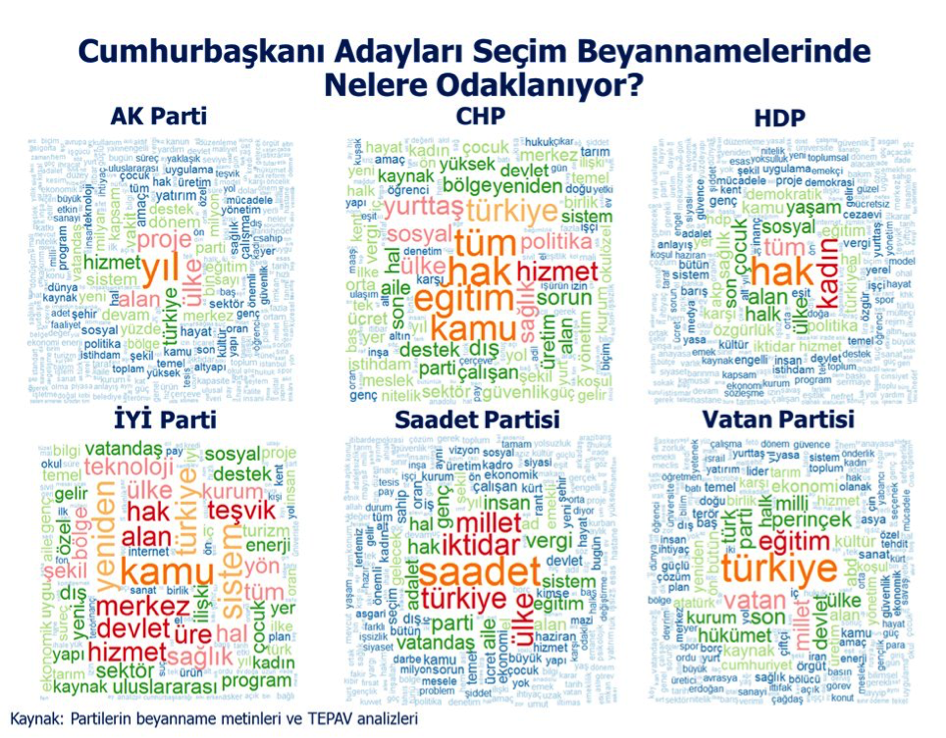 Source: Ayşegül Düşündere / Twitter
Source: Ayşegül Düşündere / Twitter
The words in clouds are shown bigger depending on how frequent they are used in statements. AKP frequently uses the word “year, year, year” whereas other parties use a more balanced language to explain their prominent concepts.
This is the result of expressions such as “we did these, we will continue like that” which constitute the core of AKP’s statement. A party ruling the county by itself for 16 years, first enumerated its accomplishments per each year and then asked for a vote.
Normally, programs analyzing word clouds, disregard the verb in the sentence, separate inflictions from words and focus only to root concepts. This is what I had done for the word clouds I prepared during elections of June 7th 2015.
However in this election, I wanted to explain how the parties plan to realize these promises and I cleared texts from prepositions and conjunctions manually as less as possible.
The emerged word clouds approached to parties’ discourse in rallies.
AKP
The fact that the most used word in AKP’s statement is “ Continuation” is not a coincidence. Those who are content with Turkey’s current situation and who think Turkey will not deteriorate under AKP ruling, can vote for AKP without hesitation.
Indeed the statement enumerates systematically, first the services made (or claimed services) in an area before stating the promises by giving details such as “percentage, billion, million, km”, and makes promises by saying “we provided” this service, “we will provide” this service.
Among the main subjects, “education” is the most frequent one used by AKP in its statement. According to many experts, this problem is the most failing area of the party. This is not a coincidence either.
CHP
When CHP’s statement is compared with AKP’s statement, CHP makes promises by saying “Again”… “We will provide”. To sum up in one sentence, CHP is seeking to ratify the damages occurred during AKP’s 16- year rule.
The list of the things that main opposition party would like to reinstate is long however, justice, freedom, universal rights, financial balance, transparency and audit are the primary ones.
The fact that the word “public” has a significant place in the statement describes the way of reinstating the system. Under CHP rule, public order will be ensured through use of public funds by public officials for public interest.
HDP
Naturally, “woman” is the primary matter in HDP’s statements. HDP even has a separate statement regarding women’s rights as it had in previous elections. Besides, social rights, democracy, freedom and equity come to the forefront. The Party has an economic manifesto titled “Fair Distribution” in which it details such issues.
HDP is an opposition party and this is reflected on the language of the statement. Sentences ending with “we will do” are mostly formed with “we will cancel” or “we will fight”. But the principal message of the general statement is change towards good and assurance that change is possible.
The words “we” and “together” are based on the principle of sharing power and responsibility conforming with the slogan of “it will change with You” used by the party. The fact that statement includes comics, reflects very well the witty language which was not lost although Demirtas is detained for 600 days.
HDP is always associated with Kurdish question in mainstream and alternative media. However in fact, there are many common themes in party’s election materials with European green parties and social democratic parties. In a possible coalition, HDP will be the party which will bring left the conciliation point.
İyi Party
İyi Parti’s statement titled “Agreement with our Nation” includes 404 articles each of which is a sentence and their explanations.
The shortest way to position this new party in the political arena might be comparing the clouds with MHP and CHP. Although İyi Party was born within MHP and established by people having state tradition, apart from the Kurdish issue, İyi Party mostly resembles to CHP. Both parties pursue similar policies on many areas such as education, health, legal system and legislation. They intend to accomplish those policies by public regulations and private sector incentives.
The clouds of CHP and İyi Party show hope that they will not have difficulty in settling in a coalition government to be founded after elections.
MHP
Many writers commenting on AKP- MHP alliance concluded that MHP will be absorbed by AKP whereas AKP could not benefit (in terms of votes) from this alliance as it hoped. But the cloud above make us think the motto “our ideas are in power while we are in prison” expressed by executives of MHP following 1980 coup.
When AKP describes its accomplishments, Erdoğan’s political discourse for the last four years is similar to MHP’s election statement. Emphasizing on “National” and “Turkish” instead of justice and development shows the source he turned to establish “Powerful Turkey”.
We should also remember that Bahçeli is the person who initiated the election of November 1st 2015 which determined the current government and referendum process which determined the current system.
Saadet Party
The statement of Saadet Party is actually a speech titled “Turkey’s Vision” of party’s leader Temel Karamollaoğlu. The words in the cloud therefore reconstruct Karamollağlu’s sentences: As a conservative party, Saadet Party promises to establish an equitable and clean Turkey founded on family.
Party According to Leaders, country according to president
Let’s be honest, majority of voters vote according to leader. In fact, in our country where we crave for intra-party democracy, parties are formed by leaders, Members of parliament disagreeing with them are excluded from the list on the first occasion. Therefore, the way how a party rules a country or how efficient it opposes depend on the leader more than necessary.
Doğu Perinçek is leader of İşçi/Vatan Party for 26 years, Devlet Bahçeli of MHP for 21 years, Recep Tayyip Erdoğan of AKP for 17 years (excluding the periods where they hand over leadership due to formality) and Kemal Kılıçdaroğlu of CHP for eight years respectively.
The system allegedly accepted by referendum of April 2017, shows that a leader can shape the country as its own party as of next week. Therefore the characters of candidates are very important.
Recep Tayyip Erdoğan
According to profile written by Emre Emel from BBC Turkish, AKP leader shaped Turkey’s recent history in parallel with his contradictions. In the wake of June 24th, we may be obliged to live in a system where one person is the one and absolute leader of the entire nation, his last big project.
Thus, besides Erdoğan with whom we are acquainted in years, interpreting correctly his personal election manifesto and seeing that it is very similar to MHP’s 2018 statement, could give us an opinion about Turkey’s potential short term future.
Muharrem İnce
The profile of Muharrem İnce was written by İrem Köker from BBC Turkish.
İnce who once said “do not victimize yourself by teasing with me” to AKP members of parliament, addressed big crowds in more than 100 rallies including the one in Diyarbakır, was in the spotlight with his answers to Erdoğan and reached a significant number of audience with his interviews given to pro- ruling party press. The impact of populism in this cannot be denied.
Education is one of the most important concepts in the document titled “Future Declaration” which is the election statement of İnce who is a former physics teacher. Similarly to CHP’s statement, there is an emphasize on state, public and law, the key word is again.
İnce promises “repairing” process during the first two years of his presidency and return to parliamentary system. If this will be soft transition process, his profile is here.
Meral Akşener
Sezin Öney from P24 wrote a very detailed profile of Meral Akşener who served as Minister of the Interior of Erbakan government. Her nationalist ideology was formed during student protests before 1980, she climbed political ladder next to Çiller and her prostate approach during the period of unidentified murders got her to her current position. Her opposition in the party against Bahçeli brought İyi Party to Turkey.
Aksener, presidential candidate of İyi Party, does not have a separate election statement. For this word cloud, I collated her rally speeches in last week from news of Yeniçağ, a newspaper close to the party. Therefore, unlike a written text, “I” might be more frequently used in rally speech. Ince also emphasizes on “I” in rallies unlike his statement.
Despite of this deviation, economy stated in Aksener’s speech is noteworthy.
Selahattin Demirtaş
The life of Selahattin Demirtaş is a short history of Kurdish Question. He got involved with politics following the murder of Vedat Aydın. His choice of being a lawyer rather than joining militia is his solution to this life. Sezin Öney’s portrait tells the story of how a self-made man becomes a leader directing Turkey’s faith.
The title of Demirtas’s election statement is “It will change with You”. He promises changing the one man regime by saying “ I am not saying I will do it, I am saying we will do it”.
Demirtas suggests changing the system by sharing powers unlike Ince who suggests changing the system by taking over Erdogan’s powers. Therefore, his projects are social rather than institutional. He grounds this on an egalitarian and democratic society and people respectful for differences.
I used a portrait photo for this cloud but in Demirtas’s statement, there are photos of women in HDP rallies, children smiling and making victory sing and workers in the fields, more than his photos (one photo).
Indeed Demirtas says “I will be President to end Presidency. When the process is over, my powers will be limited and Presidency will become a representative and social consensus position”.
The request voiced by the expression “ we will not make you president” three years ago is coming from his constituency. The last image of the statement is a photo of a teenager who holds a poster in a rally saying “Imagine a president who prepares the breakfast at home”.


